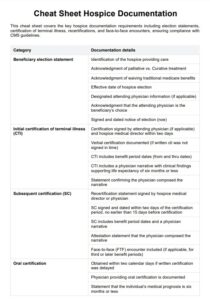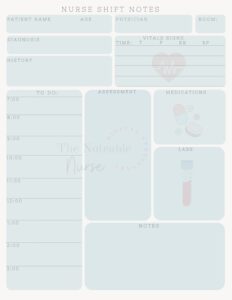Landing a new position as a Nurse Practitioner is an exciting milestone, filled with the promise of new challenges and opportunities to make a real difference in patient care. Amidst the enthusiasm, it is crucial to remember that a formal employment contract will define the terms of your professional relationship with your new employer. This document isn’t just a formality; it’s a critical legal agreement that outlines your responsibilities, compensation, benefits, and many other important aspects of your work life.
Understanding the intricacies of such a contract can feel daunting, but taking the time to carefully review and understand every clause is paramount to protecting your interests and ensuring a fulfilling career. This article aims to demystify the key elements you should look for and consider, offering insights into what makes a robust and fair agreement, and why having a well-structured nurse practitioner employment contract template as a reference can be incredibly beneficial.

Key Components to Look For in Your NP Employment Contract
When you receive an employment contract, it’s more than just a job offer; it’s a detailed blueprint of your professional future with that organization. Don’t rush into signing. Instead, approach it with a keen eye, understanding that not all contracts are created equal, and what might be standard in one practice could be vastly different in another. Every section, from your job duties to the terms of your departure, holds significant weight and requires your careful attention.
One of the first areas most Nurse Practitioners focus on is compensation. This section typically details your base salary, often specifying whether it’s an annual figure, hourly rate, or based on productivity. It should also outline any potential for bonuses, raises, and the frequency of performance reviews. Understanding how your pay is structured and the potential for growth is essential for your financial planning and career satisfaction.
Beyond the direct pay, the benefits package is another cornerstone of your overall compensation. This usually includes health insurance, dental and vision plans, paid time off for vacation and sick leave, and often a retirement plan like a 401(k) with potential employer contributions. These benefits can significantly impact your financial well-being and work-life balance, so understanding their scope and your eligibility is vital.
Understanding Your Compensation and Benefits
Delving deeper into benefits, look for clauses related to continuing medical education (CME) – covering both time off and financial stipends for courses and conferences, which are crucial for maintaining your licensure and professional development. Malpractice insurance is another non-negotiable item; the contract should clearly state who provides it, the coverage limits, and whether it’s “occurrence-based” or “claims-made” with “tail coverage.” Misunderstanding this can leave you vulnerable in the future. Also, investigate any provisions for disability insurance, life insurance, and professional memberships.
Essential Sections to Review
Pay particular attention to the “non-compete” and “non-solicitation” clauses. These can significantly impact your ability to work in a similar role or area if you decide to leave the organization. They often specify a geographical radius and a time frame during which you cannot practice or solicit patients or employees. While some states limit their enforceability, understanding their presence and potential implications is crucial for future career mobility.
Why You Shouldn’t Sign Without Reviewing (and Negotiating!)
Receiving an employment contract is the beginning of a conversation, not the end. Many Nurse Practitioners, especially those early in their careers, might feel pressured to accept the initial offer as presented. However, it’s important to remember that most employment contracts, particularly in healthcare, are negotiable. From salary and benefits to specific clauses about call schedules or non-compete agreements, there is often room for discussion and modification to better suit your needs and the employer’s.
The value of seeking professional legal counsel before signing cannot be overstated. An attorney specializing in healthcare employment contracts can identify red flags you might miss, explain complex legal jargon in understandable terms, and advise you on industry standards. They can also assist in drafting counter-proposals that are both reasonable and professionally presented, ensuring your requests are taken seriously and structured appropriately.
One of the most common pitfalls of not thoroughly reviewing and negotiating your contract is realizing later that certain terms are unfavorable or were misunderstood. This could lead to dissatisfaction with your compensation, an unsustainable work-life balance due to unclear on-call expectations, or even legal complications if termination clauses or non-compete agreements are invoked. Proactivity here can save you significant stress and potential financial strain down the road.
If any aspect of the contract isn’t clear, seems unfair, or doesn’t align with previous verbal agreements, it’s your right, and indeed your responsibility, to ask for clarification or propose changes. A good employer will appreciate your diligence and willingness to ensure mutual understanding and a fair agreement. Remember, a nurse practitioner employment contract template is a starting point, but your specific agreement should always be tailored to your unique situation.
Steps Before Signing
Taking the time to understand and potentially negotiate your employment contract is an investment in your professional future. It sets the foundation for your working relationship, ensuring that your rights are protected, your contributions are valued, and your career trajectory is aligned with your goals. Approaching this document with diligence and informed awareness will undoubtedly contribute to a more satisfying and successful Nurse Practitioner career.
This critical step of reviewing and understanding your contract empowers you to enter your new role with confidence and clarity. It’s about building a robust partnership with your employer, grounded in clear expectations and mutual respect, paving the way for you to thrive in your impactful role as a healthcare provider.



